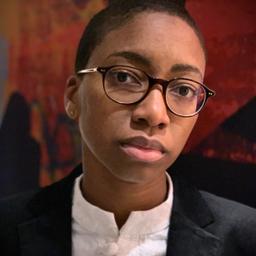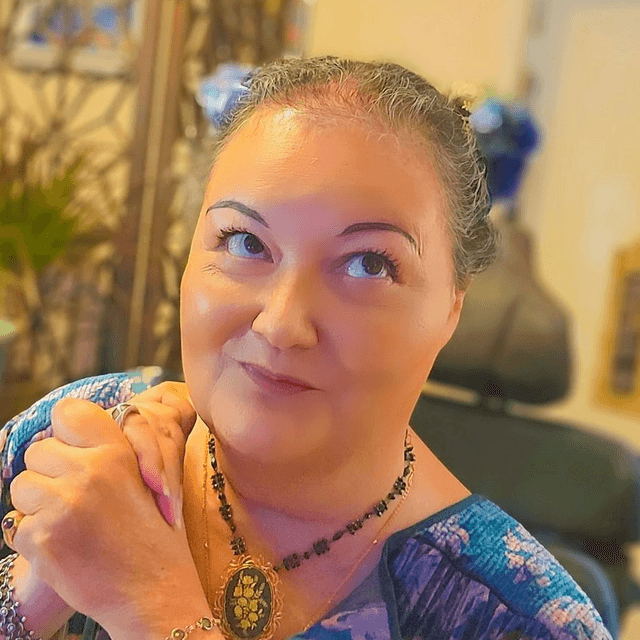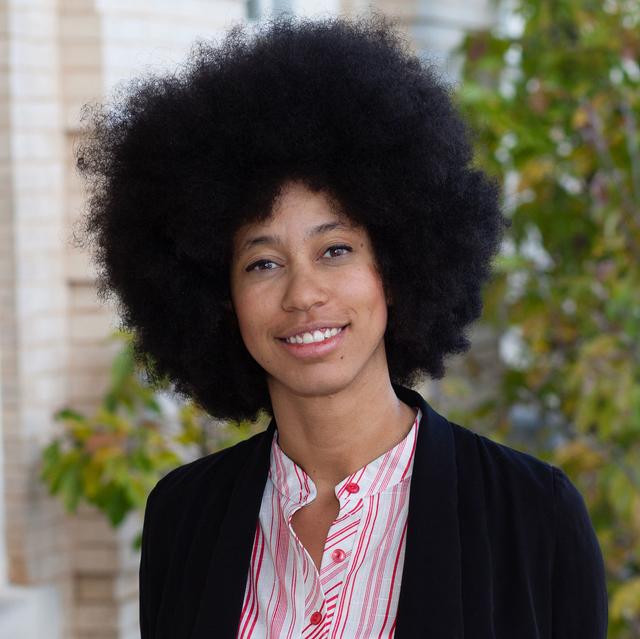Talila A. Lewis is a community lawyer, educator and organizer whose work highlights and addresses the nexus between race, class, disability and structural inequity. Recognized as a 2015 White House Champion of Change and one of Pacific Standard Magazine's Top 30 Thinkers Under 30, Lewis engineers and leads innovative and intersectional social justice efforts that illuminate and address grave injustices within education, medical, and legal systems that have gone unaddressed for generations.
As the creator of the only national database of imprisoned deaf people, Lewis, a prison abolitionist, advocates with and for hundreds of deaf and disabled defendants and incarcerated andreturned individuals as the volunteer director of Helping Educate to Advance the Rights of Deaf communities (HEARD). As one of the only people in the world working on deaf wrongful conviction cases, Lewis regularly testifies, teaches, presents and trains on carceral ableism and related topics. Lewis serves as a consultant for dozens of social justice organizations on various topics including racial, economic, gender, and disability justice and as an expert on cases involving deaf/disabled people. A founding member of the Harriet Tubman Collective and co-creator of the Disability Solidarity praxis, Lewis has taught at Rochester Institute of Technology and Northeastern University School of Law.
A recent graduate of American University Washington College of Law, Lewis has received awards from numerous universities, the American Bar Association, Congresswoman Eleanor Holmes Norton, American Association for People with Disabilities, the Nation Institute, National Black Deaf Advocates, and EBONY Magazine, among others.
Lewis is a 2018 Roddenberry Fellow & a 2018 Atlantic Fellow for Racial Equity.
Intertwined Struggles: No Justice Without Disability Justice
Disability is a natural part of the human experience. Histories of ableism shape how disability uniquely lives in the bodyminds of the present, but those histories are rarely unearthed. By contextualizing and exploring the racist-ableist roots of eugenics, white supremacy, enslavement, institutionalization and incarceration, we can identify how disability is implicated and/or excluded from our work.
Developing a more expansive understanding of disability and ableism will allow us to find ways to implement practices of Disability Justice to increase solidarity between more people and movements.
Introduction to Disability Justice
This workshop will explore the past and present nexus between racism, classism, ableism, and structural inequity, focusing in particular on multiply-marginalized people. We will work to expand our collective understanding of disability and how disability-based oppressions are implicated in and central to all social systems by contextualizing and exploring the racist-ableist roots of eugenics, white supremacy, enslavement, institutionalization and incarceration. We will discover how ableism in tandem with other oppressions continues to form and inform all social systems, including the criminal legal system. In addition to developing methods to implement disability justice into our movements, we will work to understand how undoing ableism is necessary for activism that seeks to engage with and center those at the margins of the margins.
Grounding Movements in Disability Justice
There are many gaps in conversations about COVID-19 and in general movements. These gaps pertain to disability, ableism and related issues+oppressions. Presenters will be contesting dominant notions and narratives about disability and ableism, offering historical perspectives on the construction and maintenance of disability and the connections between ableism and all forms of structural and systemic inequity (especially anti-Black racism), and providing insight on how to practice disability justice, among other things.
The Love to Liberation Pipeline: Disability Justice & Solidarity
Current education and legal systems continue to have devastating effects on marginalized communities. While many have come to recognize the cyclical violence these systems inflict on racialized communities, low-income and no-income communities and LGBTQ communities, far too little attention is paid to the injustices visited upon disabled and deaf communities, or to the link between these marginalized communities and the disabled identity. This, when disabled Youth are disproportionately targeted in school suspensions, arrests and expulsions; the foster “care” system; and within economically distressed communities. People with disabilities also represent more than half of the people killed by the police annually and are the largest minority group within our jails and prisons.
Dismantling the school to prison pipeline requires an intersectional approach that addresses varied causes of education inequity simultaneously.
Our collective failure to address trauma and disability experienced by our Youth contributes to cycles of violence within our communities and to our children being pushed out of out of school and into a penal system that only serve to further traumatize young people and pave the way to adult incarceration. Over-reliance on punitive discipline does not consider (and too often punishes) poverty, disability, race, trauma, and other lived experiences of our youth.
Mass Incarceration of Disabled, Deaf, Black & Poor
In recent years, there has been a concerted national effort to raise
awareness about and bring an end to end mass incarceration of People of Color and poor people. Despite the fact that disabled and deaf people make up a large percent of the United States incarcerated population, there has been very little national discussion about the impact of mass incarceration on disabled people–particularly disabled poor people and disabled People of Color. There has been an alarming increase in reports of police brutality against disabled and deaf people, and statistics revealing that students with disabilities are disproportionately among those youth caught up in what has recently been dubbed the “school to prison pipeline.” Not surprisingly, we have simultaneously seen a marked increase in exonerations of people with disabilities, raising grave concerns related to law enforcement’s disability cultural competence and public policy that criminalizes people with disabilities.
This presentation will draw connections between disabled, deaf, black and poor people’s experiences with mass incarceration, focusing in particular, on people with intersecting identities. Discussion will center around disabled and deaf people’s experiences with police brutality; the school to prison pipeline; wrongful arrests and convictions; disproportionately harsh punishment for alleged crimes or violations of regulations in court and prison contexts, respectively; and lack of access that leads to higher recidivism rates for these historically misunderstood and underserved populations. We will end by discussing action that can be taken to combat mass incarceration and to ensure that disabled and deaf people have equal access to the justice system.








